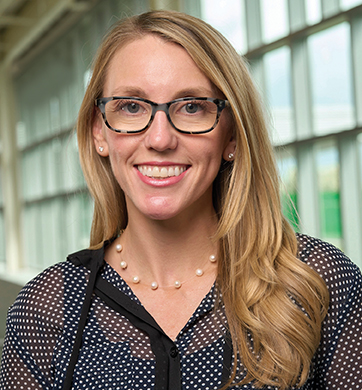Words Matter | Editorial
As the 2024 election year heats up, positive framing will be increasingly important for libraries. I’m certainly guilty of falling into a “doom loop” of negativity when I think about what the future might hold for libraries—or even democracy itself. But we cannot be our smartest, most strategic selves if we focus only on negating anti-library rhetoric. We need to advance a positive pro-library narrative—one that is grounded in the history of our good work—to unite us as advocates and connect with voters across the spectrum.
Advancing pro-library stories in this election year
 “Words create worlds.” That’s what one of my grad school professors would say when we talked about large systems change. He was referring to the idea that the precise language we use shapes the way we feel and act. Positive language lights up pathways in our brains, making us more open to imagining new ideas, whereas negative language creates stress and anxiety that shuts us off from our most creative thinking. Our minds are stronger and more effective when we focus not on the problems before us, but on our strengths and possibilities.
“Words create worlds.” That’s what one of my grad school professors would say when we talked about large systems change. He was referring to the idea that the precise language we use shapes the way we feel and act. Positive language lights up pathways in our brains, making us more open to imagining new ideas, whereas negative language creates stress and anxiety that shuts us off from our most creative thinking. Our minds are stronger and more effective when we focus not on the problems before us, but on our strengths and possibilities.
As the 2024 election year heats up, positive framing will be increasingly important for libraries. I’m certainly guilty of falling into a “doom loop” of negativity when I think about what the future might hold for libraries—or even democracy itself. But we cannot be our smartest, most strategic selves if we focus only on negating anti-library rhetoric. We need to advance a positive pro-library narrative—one that is grounded in the history of our good work—to unite us as advocates and connect with voters across the spectrum.
In the first in LJ’s series of election year discussions (“2024 Election Roundtable,” pp. 16–19), our experts agreed that thoughtful messaging is essential to effective library advocacy. Understanding our audience and what’s important to them can help reveal where our values are aligned. Does your member of Congress care about veterans’ issues? Remind them how your library helps veterans access benefits online. Has your state legislature mandated science of reading curriculum for K–12 schools? Show them how your library tutoring program improves student reading scores.
In places where proposed legislation threatens library independence or attempts to criminalize librarianship, we need to take back the narrative, turning up the volume on positive library stories. We help children learn to read; we support student success; and we bring community together in ways that matter—there’s strength in that message. We can point to examples of broader community benefit, like at Baltimore County Public Library, MD, where they forged a nonprofit partnership to bring free eye exams and glasses to kids in need, or the SAME (So All May Eat) Café at Toledo Lucas County Public Library, OH, which serves healthy food to everyone regardless of their ability to pay. Libraries have been trusted partners in their communities for more than a century—we’re not a problem that suddenly needs solving.
Tracking candidates’ positions on policies that matter to librarians, mounting levy campaigns, and rallying supporters when faced with anti-library legislation isn’t easy. When we see a political candidate burning books with a flamethrower or are confronted by detractors accusing librarians of horrific things, it’s hard to find any words, let alone positive ones. But then I think about someone like Mychal Threets (@mychal3ts), whose uplifting stories of “library joy” have captured the hearts of millions on social media. I think about Skip Dye at Penguin Random House and the way he inspired his organization to publicly support the freedom to read. People are drawn to the power of positive messages.
In this noisy election year, libraries can choose to play defense, pushing back on the stories that others write for us. Or we can proactively define our own narrative, remembering that librarians know a thing or two about storytelling and creating worlds with words.
After all, whether we see it as a privilege or a responsibility, librarians are the stewards of the words that some in this electoral cycle would seek to erase:
“All this happened, more or less.”
“Quiet as it’s kept, there were no marigolds in the fall of 1941.”
“Are you there God? It’s me, Margaret.”
“I saw the best minds of my generation destroyed by madness…”
Let’s remind everyone that words matter.


RELATED
ALREADY A SUBSCRIBER? LOG IN
We are currently offering this content for free. Sign up now to activate your personal profile, where you can save articles for future viewing









Add Comment :-
Comment Policy:
Comment should not be empty !!!